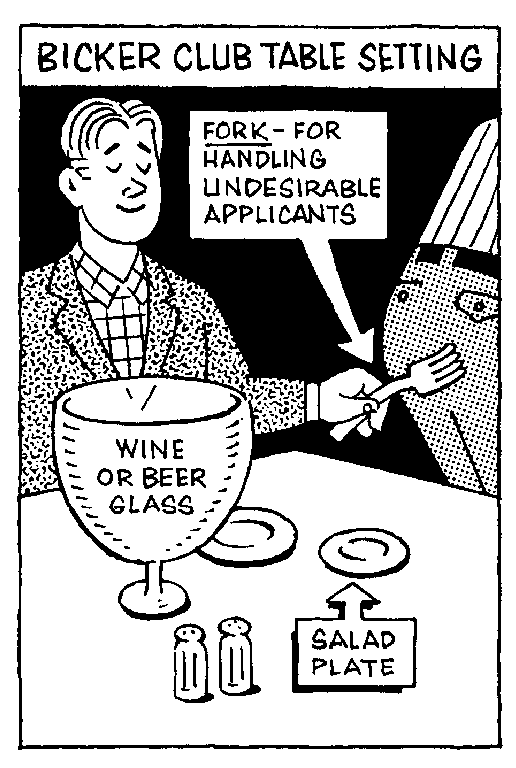
Going away to college is supposedly all about gaining independence, finding yourself, and realizing that you're the only person you have to answer to. "Your parents are miles away," say RAs and fellow freshmen during orientation week, intended partly to caution, partly to tempt. But for some students, that mantra has just the opposite of the intended effect, reminding them that their folks are, literally, just a couple miles down Route 1.
This is something that my friends regularly tease me about, jokingly asking if my odometer can handle the trip as I drive off for the weekend. My parents now live in Lawrenceville, New Jersey, which is about a 15-minute drive from my dorm. I could feasibly catch the student government-sponsored mall shuttle home for dinner. People often ask me whether I like the arrangement, and my answers usually reflect my mood at the time rather than a strong opinion I've spent lots of time pondering. After all, a student's permanent address isn't something they have very much influence over.
Halfway through my freshman year, however, it was a frequent conversation topic around the kitchen table in my old house in Bedford, New Hampshire. As my dad weighed job offers from Colorado and New Jersey, I often heard him joke with people about the irony that they might end up living in the Princeton area. "We decided we'd just follow Nancy," he'd sayand I felt like I was missing the punch line. Initially, I felt sort of violated, though not out of a fear that my parents would find out about drunken revelries or try to break my habit of late-night procrastinating. It was more the idea that my dad saw it as a joke, and I worried my parents would act out this "funny coincidence" by showing up on my doorstep unannounced, not to check up on me but to take me to lunch on Nassau Street or to take me home for the weekend. I wanted Princeton to be "my" Princeton; I wanted to be able to tell my parents about the funny things my professors said in lecture, but I didn't want them auditing my classes. I wanted to come to visit my parents; I didn't want them coming to me. I feared I would lose control over my college experience if my parents moved into my area code.
Although I didn't want to admit it around our kitchen table, the convenience of being able to go home to pick up a winter coat when it got cold or to curl up in one of my mom's quilts when I got sick began to appeal to me. I recalled every time I'd wished I had my copy of Airplane! that I'd left in the VCR or that green sweater I'd left in my top dresser drawer. And the idea of having to fly all the way to Colorado on school vacationsand maybe seeing my parents less oftendidn't appeal to me either.
In the end, I told my dad to stop worrying about how it affected me and to make the choice based on the job. After all, this was what would make it possible for me to attend Princeton at all. So a year after they'd helped me load up the car with too many clothes and too many high school mementos, I helped my parents pack up their 8-tracks and family heirlooms and once again make the drive to New Jersey.
Strangely, what I now miss most about living in New Hampshire is the change of scenery it offered me on my vacations, rather than the freedom it may have given me in its distance from Princeton. I miss marveling at brilliant red and yellow trees during fall break and scooping snowballs from the driveway over Christmas, as well as the green exuberance of a late April spring. New Jersey's almost indistinguishable seasons leave me with only midterms and finals to mark the passage of time, adding to the feeling that, even when exams are over, I've never really left the Princeton campus.
But I've found that having my parents physically closer to campus doesn't necessarily change their relationship to my college education. Discussions about room draw still elicit puzzled expressions, and the only time my mom has shown up on my doorstep unannounced was to drop off chocolate croissants for me and my roommate to get us through midterms. A little over a month ago, my mom attended a Woodrow Wilson School lecture about the Clinton crisis, at my urging. We laughed over how she had become one of the "old people" who get there early and make the students sit in the aisles.
So I guess I don't consider it a bad thing for my parents to be in the same area code; at the very least, I can make my friends jealous with my thirty-cent phone bills. But this aspiring politician has set one ground rule: the détente is over if my parents follow me to Washington when I graduate.
Bicker clubs thrive, but the future of sign-in clubs is less certain
by Daniel A. Grech '99
